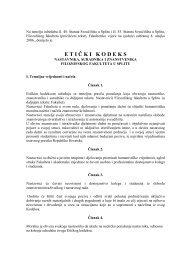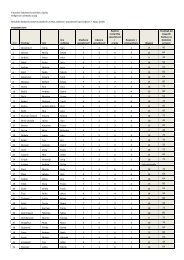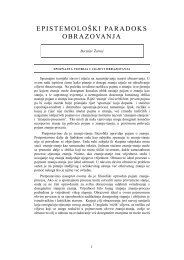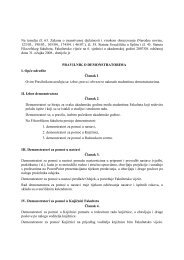Understanding Human Communication
Understanding Human Communication
Understanding Human Communication
Create successful ePaper yourself
Turn your PDF publications into a flip-book with our unique Google optimized e-Paper software.
290 PART THREE COMMUNICATION IN GROUPS<br />
CULTURAL IDIOM<br />
Muzak: bland instrumental<br />
arrangements of popular songs<br />
which are often played in elevators,<br />
stores, and restaurants<br />
Twinkies: a cream-filled snack<br />
cake<br />
ditty: a short, simple poem<br />
wind up with: have<br />
on the other hand: from another<br />
point of view<br />
Chapter 8 described various types of groups—learning, growth, social, and<br />
problem-solving groups. Of all these, problem-solving groups have been studied<br />
most intensively by social scientists.After we understand the nature of problem<br />
solving, the reason becomes clear. Solving problems, as we define it here,<br />
doesn’t refer only to situations where something is wrong.Perhaps meeting challenges<br />
and performing tasks are better terms. After you recognize this fact, you<br />
can see that problem solving occupies a major part of working life.The figures<br />
from just one company illustrate the scope of group problem solving:At 3M<br />
Corporation, managers spend a total of 4.4 million hours per year in meetings,<br />
at a cost to the company of $78.8 million in salaries. 1 Away from work,groups also<br />
meet to solve problems: Nonprofit organizations plan fund-raisers, athletic<br />
teams work to improve their collective performance, neighbors meet to improve<br />
the quality of life where they live, educators and parents work together to<br />
improve schools—the list is almost endless.<br />
This chapter will focus on both the task and the relational aspects of problemsolving<br />
groups. In addition, it will explore the nature of leadership, defining that<br />
important term and suggesting how groups can be led most effectively. Finally, it<br />
will list several common problems task-oriented groups can encounter and describe<br />
how to overcome them.<br />
PROBLEM SOLVING IN GROUPS: WHEN AND WHY<br />
To many people, groups are to communication what Muzak is to music or<br />
Twinkies are to food—a joke.The snide remark,“A camel is a horse designed by<br />
a committee,”reflects this attitude, as does this ditty:<br />
Search all your parks in all your cities . . .<br />
You’ll find no statues to committees! 2<br />
This unflattering reputation is at least partly justified. Most of us would wind<br />
up with a handsome sum if we had a dollar for every hour wasted in groups. On<br />
the other hand, it’s unfair to view all groups as bad, especially when this accusation<br />
implies that other types of communication are by nature superior. After all,<br />
we also have wasted time listening to boring lectures, reading worthless books,<br />
and making trivial conversation.<br />
So what’s the truth? Is group problem solving a waste of effort,or is it the best<br />
way to manage a task? As with most matters, the truth falls somewhere between<br />
these two extremes. Groups do have their shortcomings, which we will<br />
discuss in a few pages. But extensive research has shown that when these<br />
shortcomings can be avoided, groups are clearly the most effective way to handle<br />
many tasks.<br />
Advantages of Group Problem Solving<br />
Research over fifty years that has compared problem solving by groups to that by<br />
individuals shows that, in most cases, groups can produce more solutions to a<br />
problem than individuals working alone—and that the solutions will be of higher<br />
quality. 3 Groups have proved superior at a wide range of tasks—everything<br />
from assembling jigsaw puzzles to solving complex reasoning problems.There are<br />
several reasons why groups are effective. 4

















